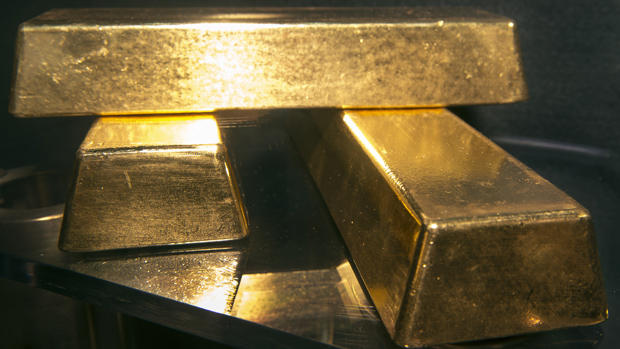Dubai gold refinery paid '$5bn in cash and dealt with Congo'
Whistleblower accuses the Middle East's largest refinery of failing to carry out proper checks

A free daily email with the biggest news stories of the day – and the best features from TheWeek.com
You are now subscribed
Your newsletter sign-up was successful
A DUBAI-BASED gold refinery has been accused of flouting international rules on the trade of gold mined in conflict zones, after claims that the company paid $5bn in cash for precious metals. The company denies the claims.
A whistleblower, Amjad Rihan, spoke out against his former employer Ernst & Young, claiming that it turned a blind eye to his warnings that the Kaloti refinery could be trading in so-called "conflict materials", the BBC reports.
Ernst & Young's audit into Kaloti found that the gold refinery was in breach of a number of international rules:
The Week
Escape your echo chamber. Get the facts behind the news, plus analysis from multiple perspectives.

Sign up for The Week's Free Newsletters
From our morning news briefing to a weekly Good News Newsletter, get the best of The Week delivered directly to your inbox.
From our morning news briefing to a weekly Good News Newsletter, get the best of The Week delivered directly to your inbox.
- Forty per cent of Kaloti's business was paid in cash without proper documentation.
- Four tonnes of gold hidden beneath silver plating may have come to Kaloti labelled as silver.
- Kaloti dealt with a supplier that had been accused of malpractice in eastern Congo.
Rihan, who led the audit team, said that Ernst & Young chose not to act on the findings of his team. He also alerted the Dubai regulator to the report, which reacted by changing its audit procedures.
The regulator, Ernst & Young and Kaloti all deny they have acted improperly.
"During the audit we came across some severe findings, some disturbing findings," Rihan said in an interview with The Guardian. "One of them is the unreported cash transactions of over $5.2bn by one refiner in one year."
Rihan explained that cash transactions can suggest malpractice. "You should avoid cash, especially if you are dealing with a substance like gold. By its nature everyone is asking for transparency and traceability. If you want to hide, the easiest way to do it is cash," Rihan said.
A free daily email with the biggest news stories of the day – and the best features from TheWeek.com
Kaloti is the largest gold processor in the Middle East, refining 300 tonnes of gold every year. Gold that passes through the processor generally ends up in central banks, jewellery or in smartphones.
Many countries struggle with problems stemming from the trade in gold. In the eastern part of the Democratic Republic of Congo there are 800 known small gold mining operations. Of these, 410 have reported cases of illegal taxation or extortion, the Guardian says. Two decades of fighting have left 5.4 million people dead in the DRC and another two million displaced.
Annie Dunnebacke, from campaign group Global Witness, told the BBC that refiners are responsible for tracing the origins of the metal they process. "They must carry out checks all the way back to the mine to find out what the conditions of extraction were, whether the gold has funded conflict, and what's happened along the way," she said.
Kaloti said the accusations were entirely "without merit". Ernst & Young were equally firm in their dismissal of the allegations. The company said it "refutes entirely the suggestion that we did anything but highly professional work in relation to our compliance engagement with Kaloti."
-
 Switzerland could vote to cap its population
Switzerland could vote to cap its populationUnder the Radar Swiss People’s Party proposes referendum on radical anti-immigration measure to limit residents to 10 million
-
 Political cartoons for February 15
Political cartoons for February 15Cartoons Sunday's political cartoons include political ventriloquism, Europe in the middle, and more
-
 The broken water companies failing England and Wales
The broken water companies failing England and WalesExplainer With rising bills, deteriorating river health and a lack of investment, regulators face an uphill battle to stabilise the industry